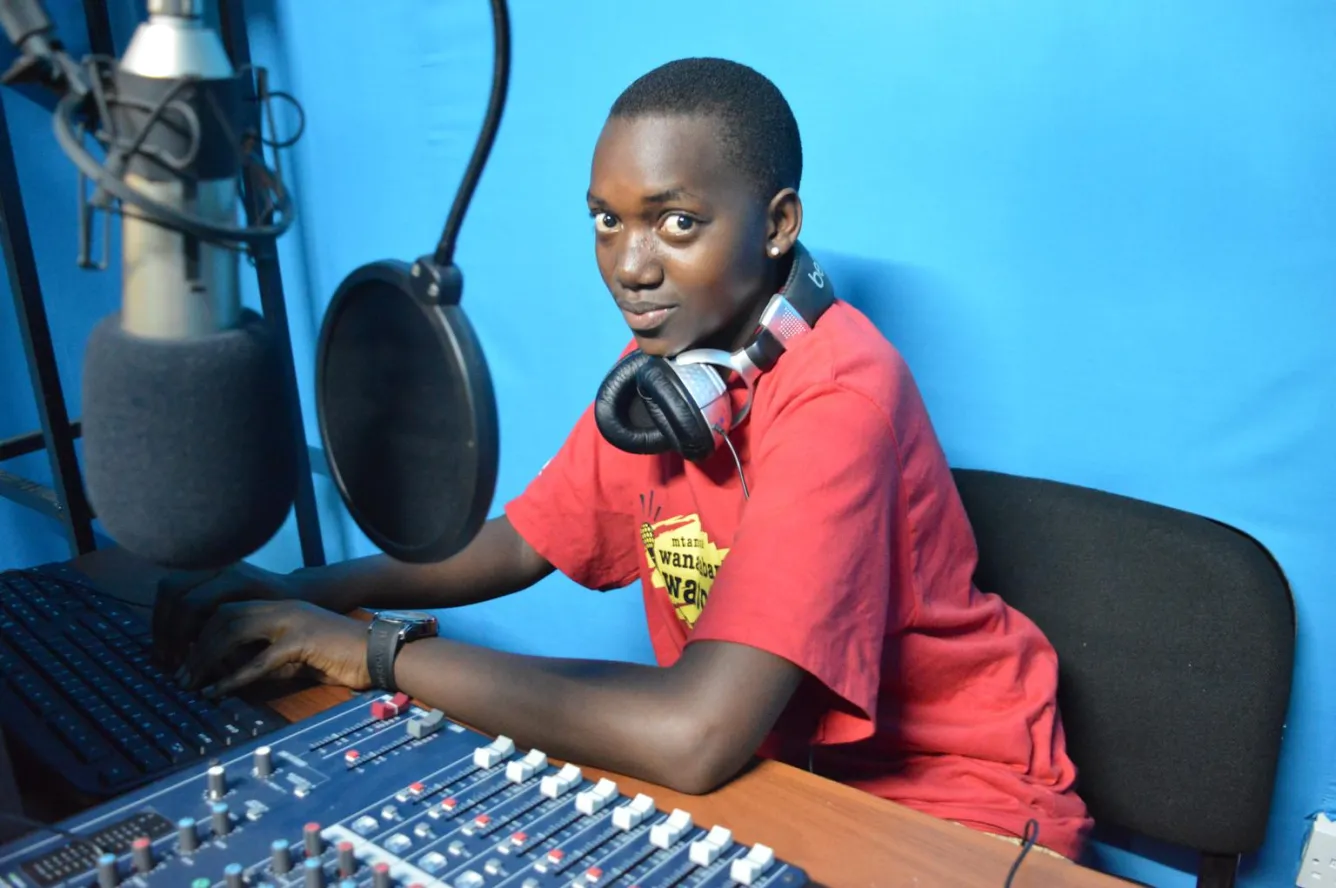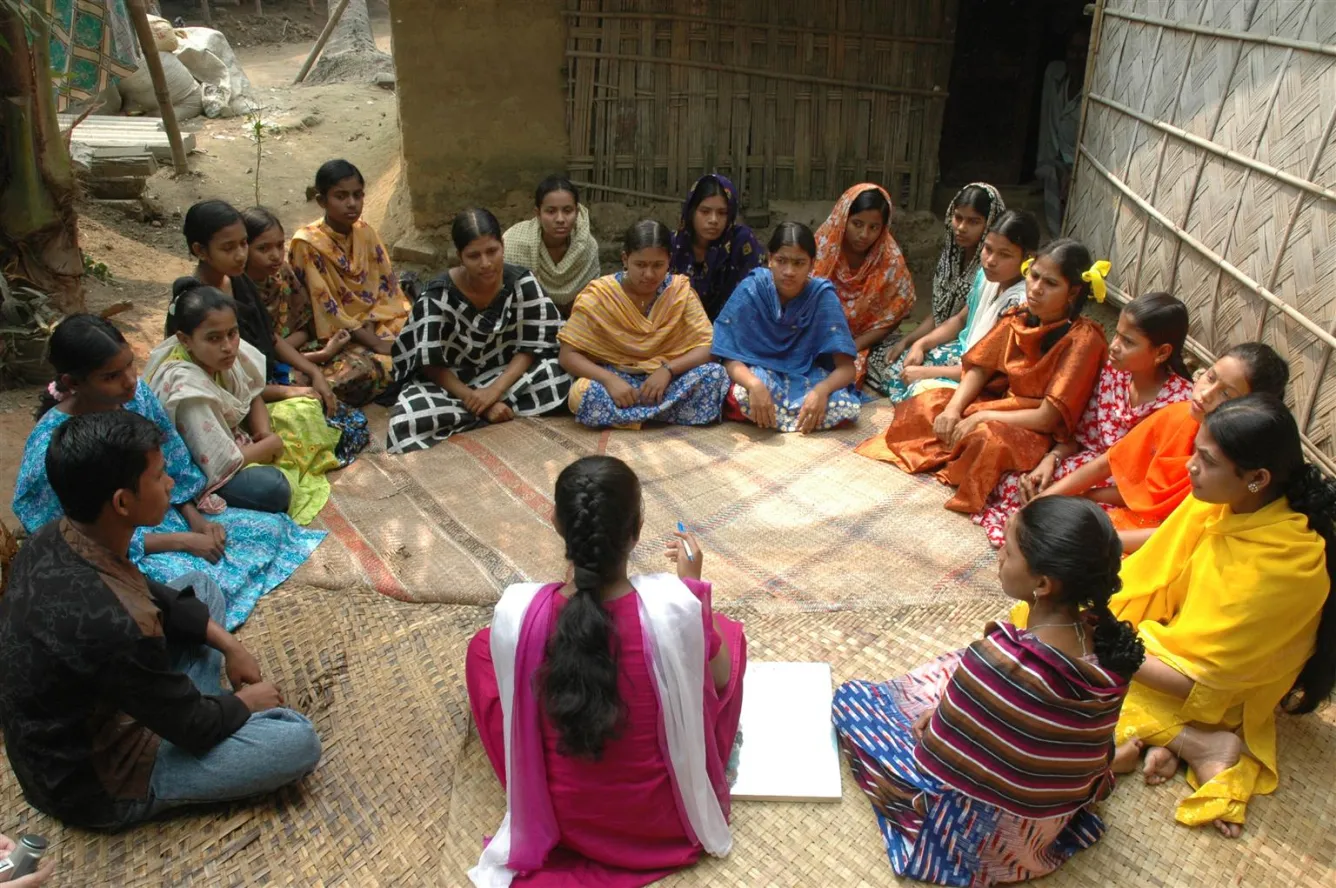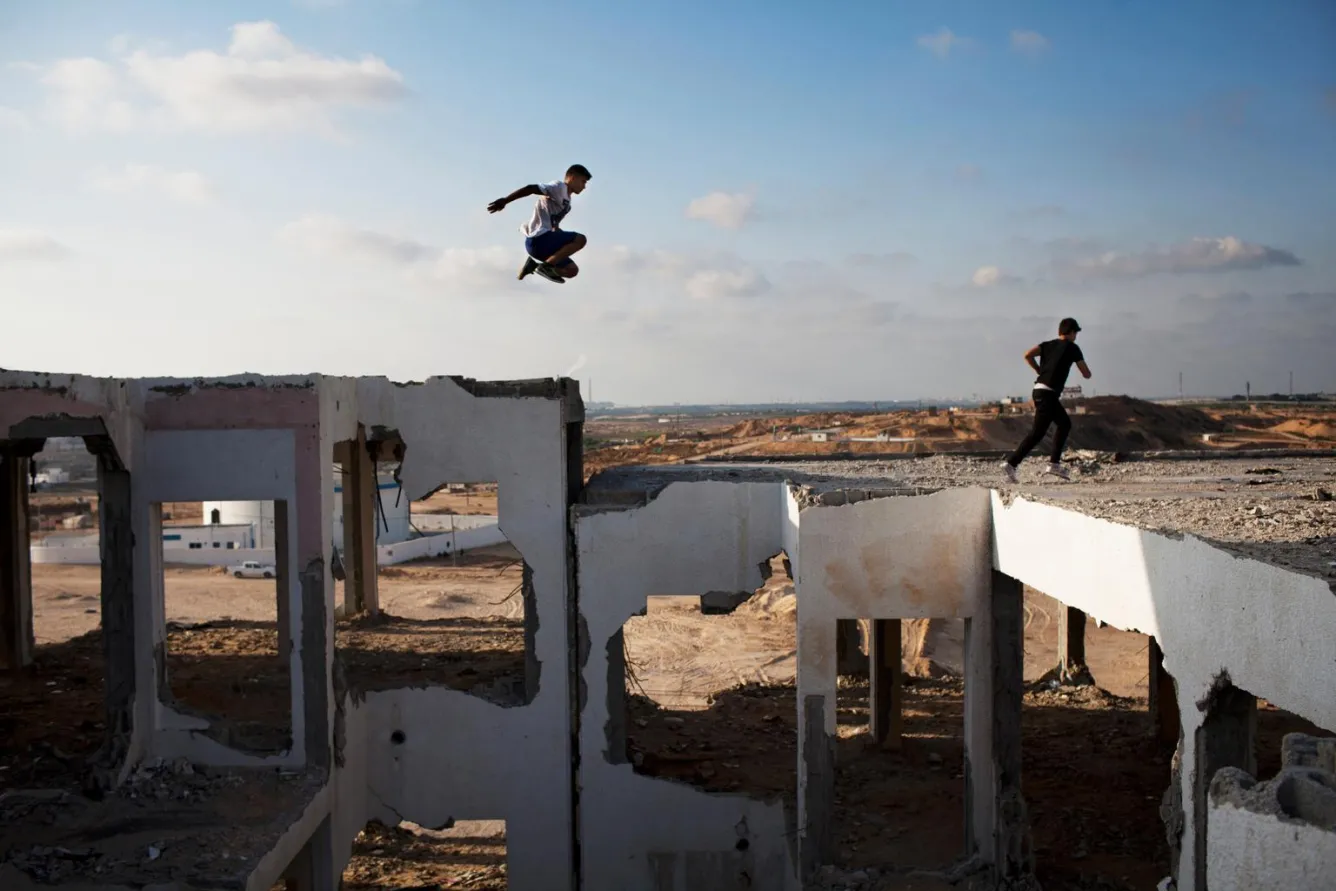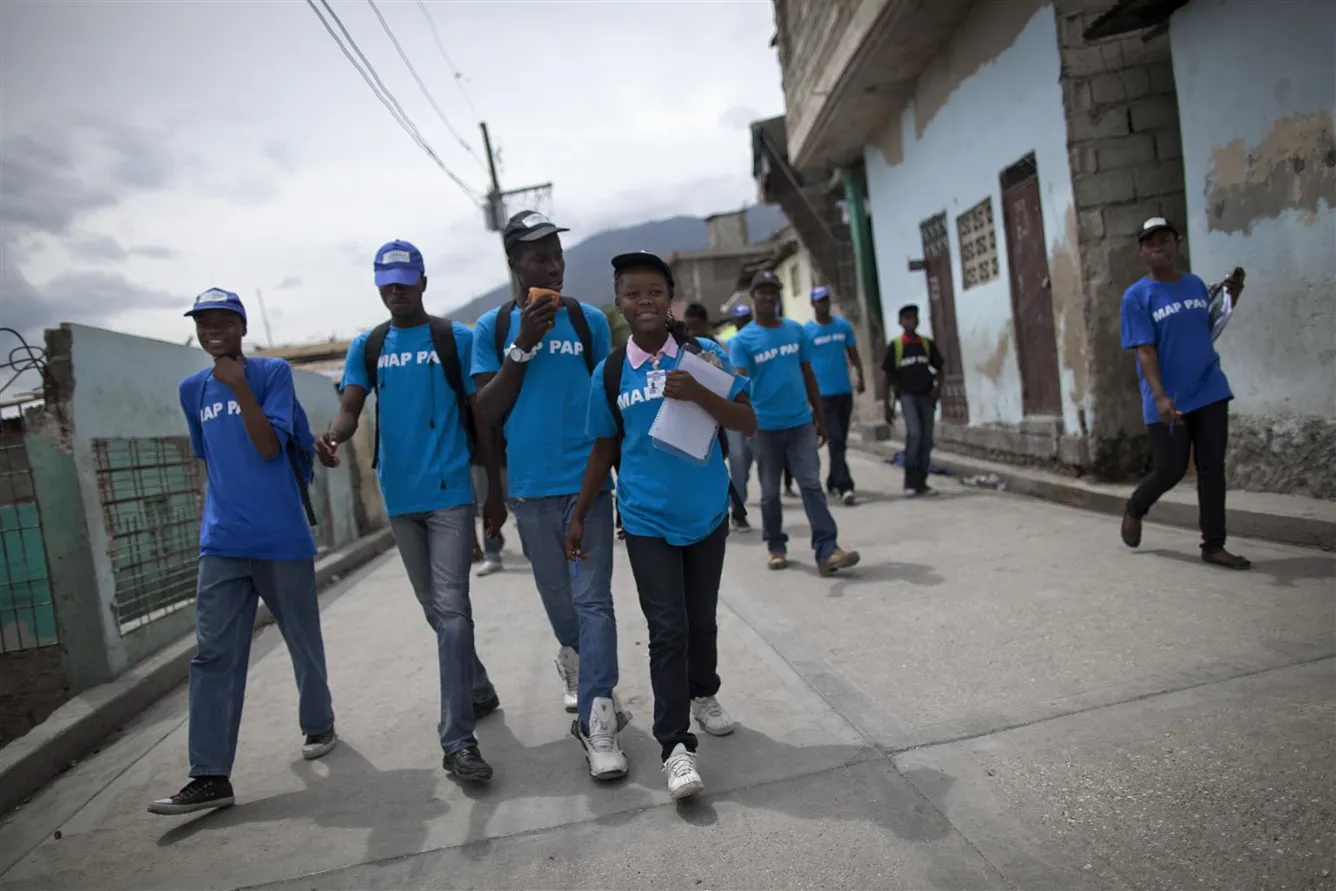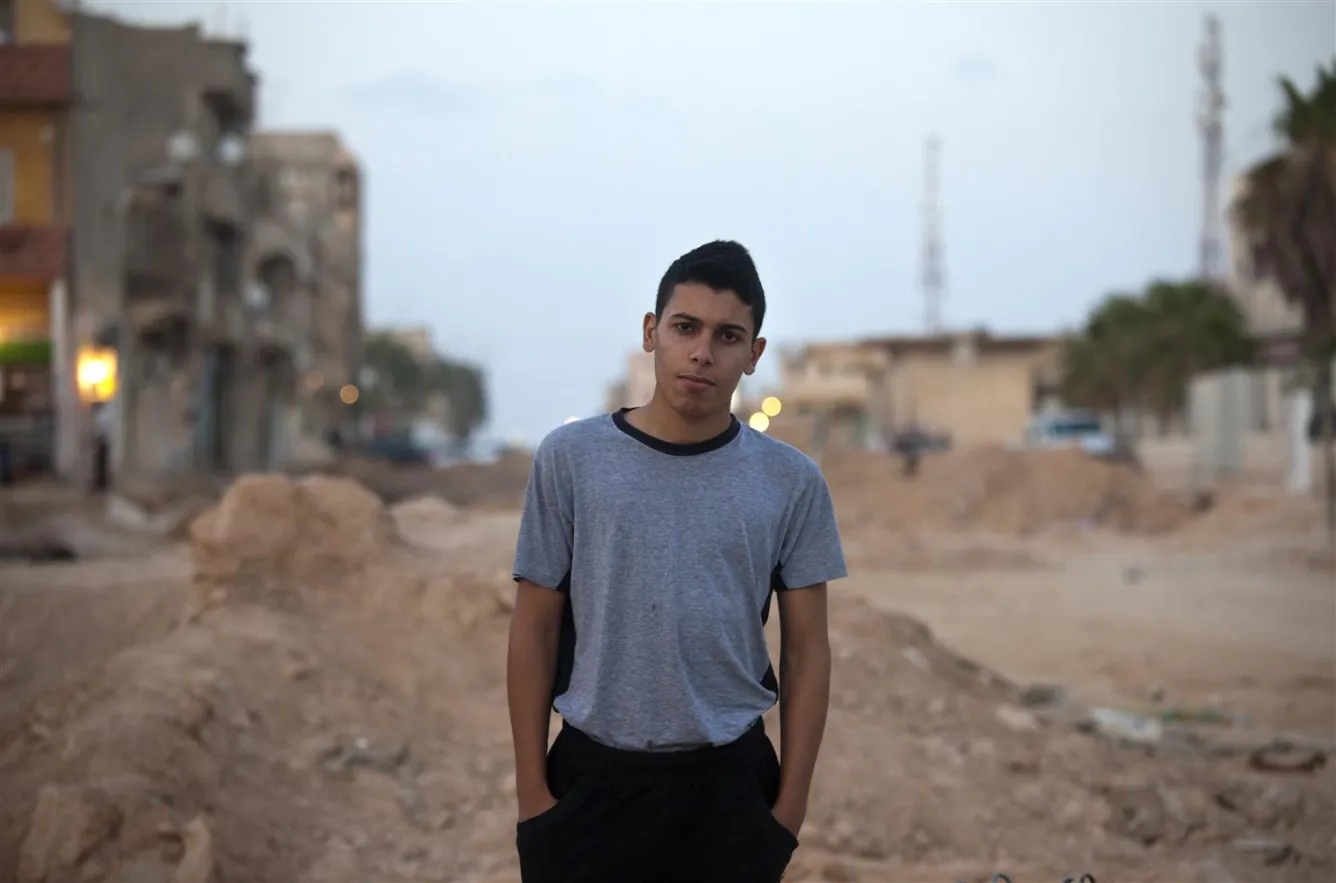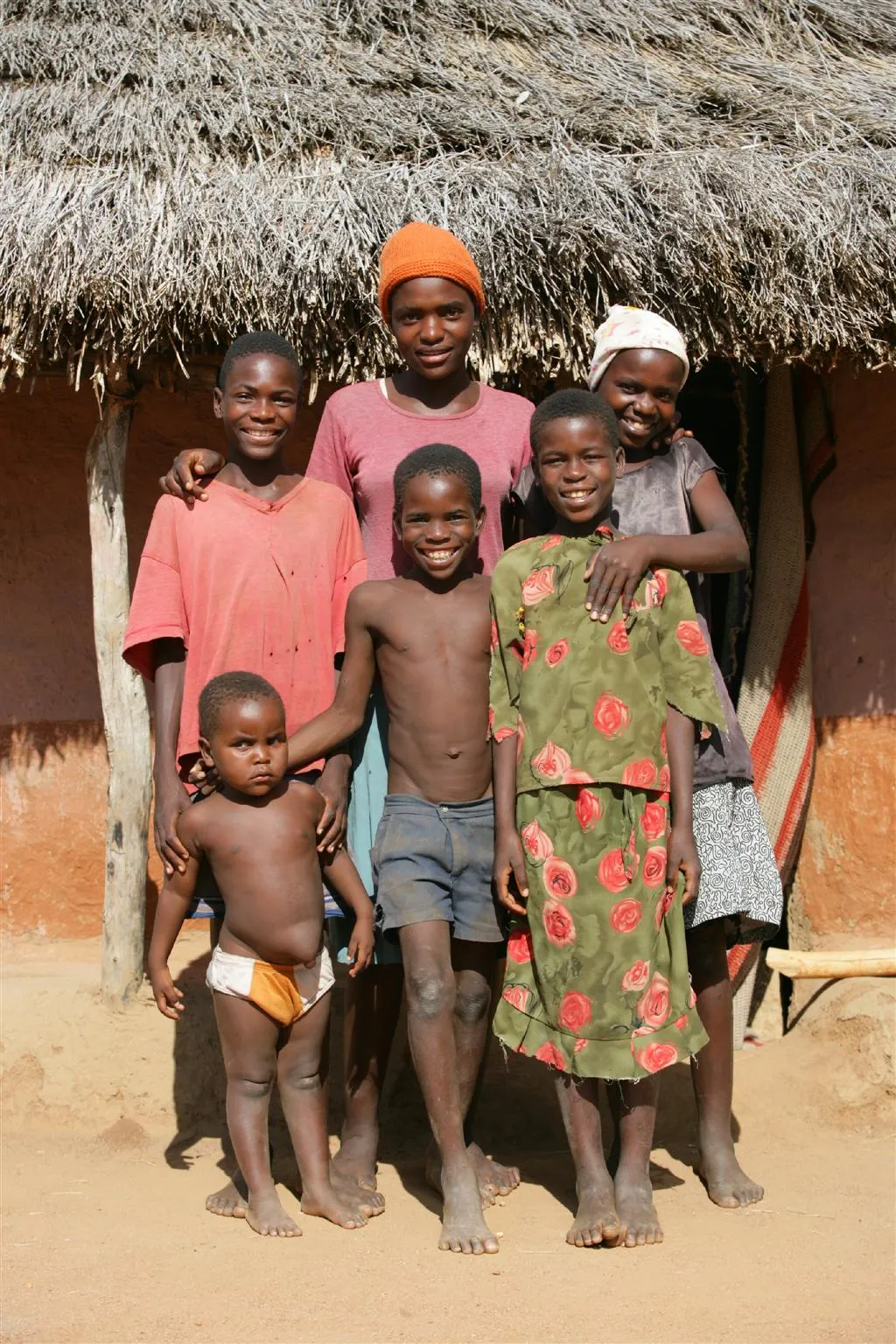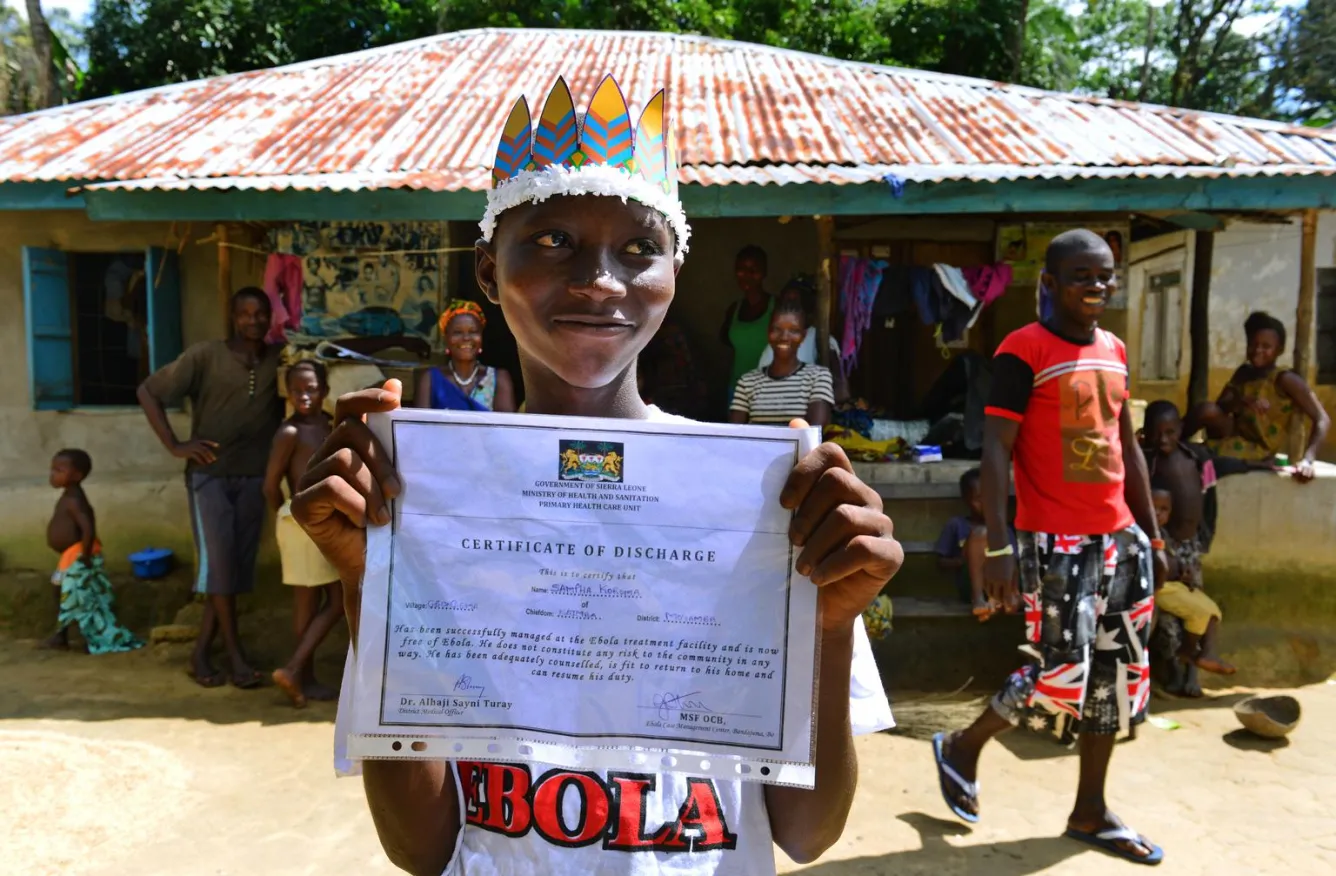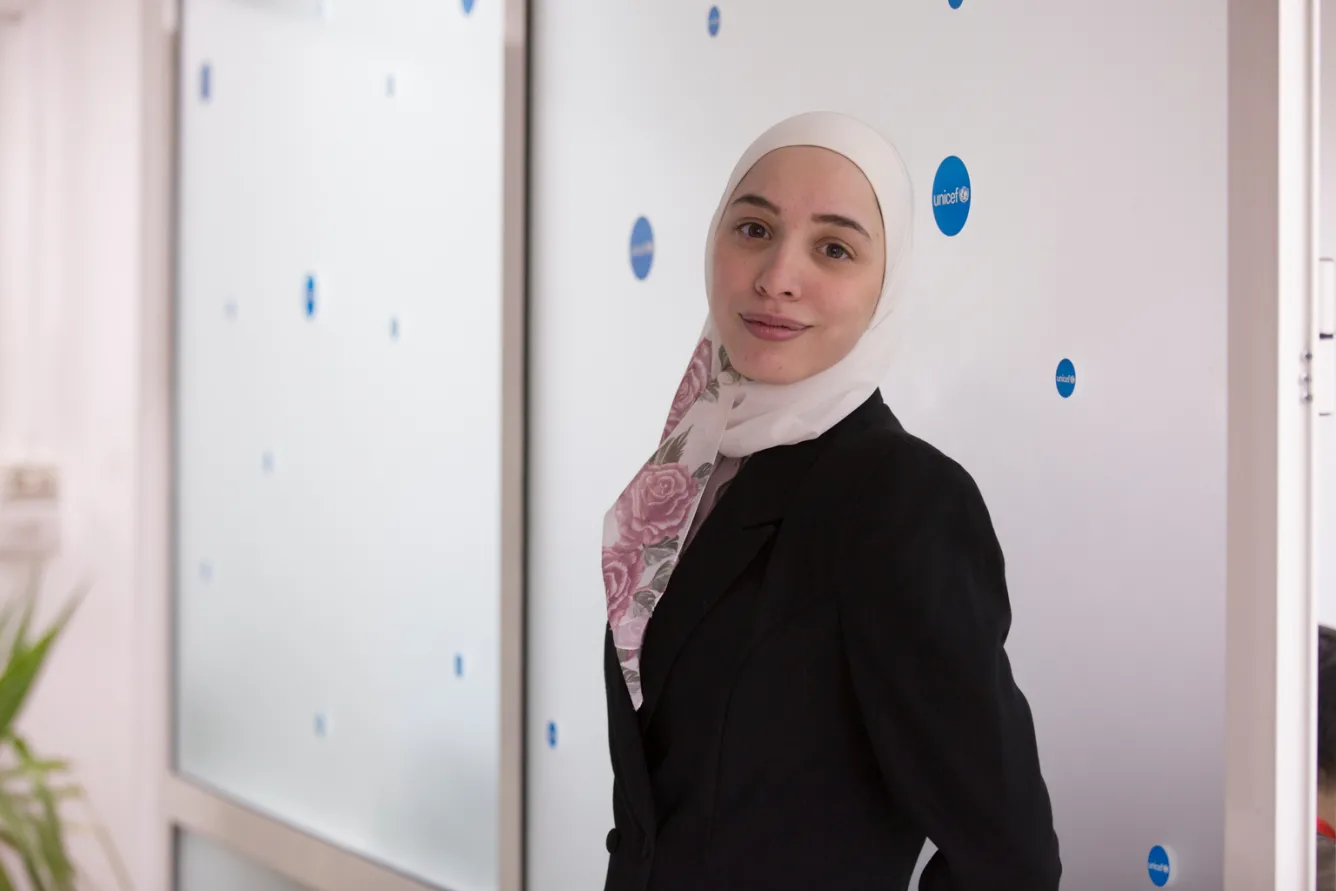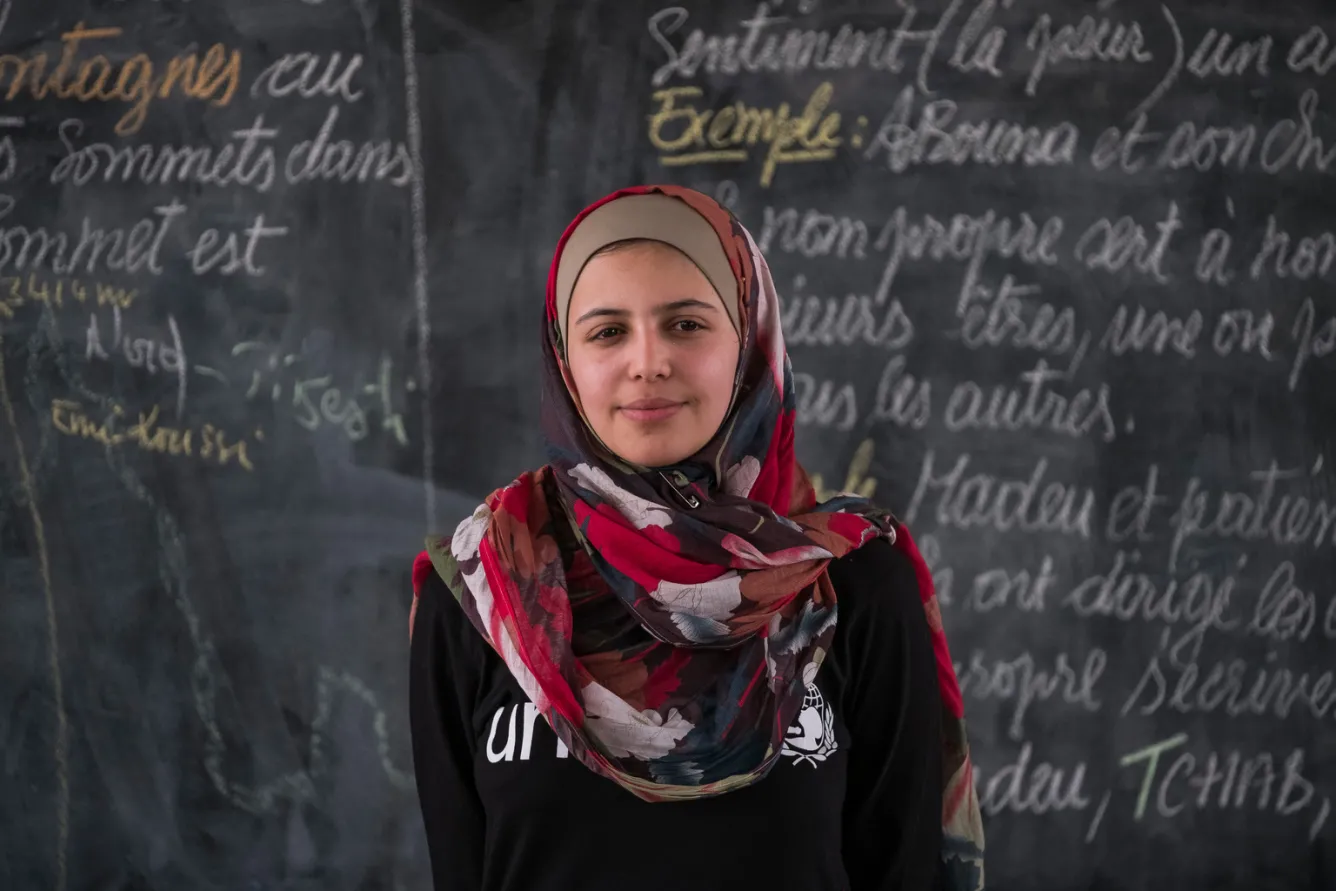There are currently 1.8 billion young people between the ages of 10 and 24 in the world--the largest youth population in history.
Political instability, labour market challenges and limited space for political and civic participation have led to increasing isolation of youth in societies. Despite this, there are some life-changing movements and activities happening in communities around the world, thanks to young people who are leading the charge for change. This year’s theme for International Youth Day is “Youth Building Peace”—from health, to media, to education and by just being themselves, meet ten youth who are doing just that.
The voice of the young people: Rightness, 16, Tanzania
Rightness Paul, 16, says,”We girls are powerful because we have the chance to raise our voice to different people and in different circumstances through mass media such as: radio, television and social networks. Another thing that makes girls powerful is respect. These days girls are respected because we can do great things. An example is academically we perform very well, and it is through education that girls can change the community and society. To educate girls is to educate the society.”
Rightness works with The Young Reporters Network, a national consortium of community-based children’s radio projects, established by UNICEF Tanzania in 2011 in partnership with the Children’s Radio Foundation, a local NGO.
The aim of the Young Reporters Network is to equip young girls and boys (ages 10 – 16) with the skills necessary to produce weekly radio shows for children and young people across Tanzania and Zanzibar, reaching millions of listeners on community and national radio stations with key messages on child rights.
The Health Advocate: Shetu, 16, Bangladesh
Shetu, 16 (centre), leads an adolescent girls’ hygiene-monitoring group, which is transforming the habits of people living in her neighbourhood in Comilla, Bangladesh.
“Before this program I saw many unhygienic latrines, it was a great problem in my area,” Shetu says. “There were many waterborne diseases and water-related diseases.”
There are now only sanitary latrines in Shetu’s neighbourhood.
The risk-takers: Fares, 15, and Fahed, 18, Palestine
Fahed jumps over the edge of one destroyed building to land atop another, while Fares, having already completed the jump, runs ahead, in the city of Beit Lahia, in the Gaza Strip.
Fahed and Fares say that engaging in parkour – an activity involving performing gymnastic manoeuvres over or on structures, such as walls and buildings – helps them cope with life in Gaza. “I don’t know about the future, but we live under siege, and this is the only thing that makes us feel free,” says Fares, who began parkour four years ago. Fahed has done the activity for seven years.
The trailblazers: Map-Pap, Haiti
Youth participants in a digital mapping initiative walk with project facilitators on a street in the Cité Plus neighbourhood of Port-au-Prince, Haiti’s capital. They are setting out to identify – and to photograph using their mobile phones equipped with UNICEF-GIS – areas of their community where adolescents are at greater risk of, or can be protected from contracting HIV. Participants wear T-shirts that bear the project slogan ‘MAP PAP’.
The messenger: Sidiq, 18, Libya
On June 11, 18-year-old Sidiq Nasser stands in a street in al-Whishi, a poor neighbourhood in the city of Benghazi. “I want a country with good institutions, where people understand what politics is, and the people and the politicians respect the law. So we have buildings we are proud of and can be recognized by the world as intelligent and strong,” said Sidiq.
He is volunteering for a media monitoring organization at a university, where he translates English language media into Arabic. “I want other young Libyans to know what is happening outside of Libya and to know that it is important to be aware of other countries,” he continued. “We can’t live on our own and we must take decisions, which might be difficult and challenging. I want to write and travel and explore and work in an honest environment.”
The head of family state: Miriam, 16, Zimbabwe
(Clockwise from the top) Miriam Madzinga, 16, and her siblings, Rutendo, 13, Moyasi, 10, Clever, nine, Dinah, three, and Peter, 13, stand outside their thatched-roof house in the town of Birchneough Bridge near Harare, Zimbabwe’s capital. Dinah has a navel hernia. The children live on their own because both of their parents have died of AIDS-related illnesses. UNICEF assists child-headed households with food, school tuition and psychosocial support.
The survivor: Sanfa, 14, Sierra Leone
Sanfa Koroma, a 14-year-old Ebola survivor, holds up his survivor certificate in front of his home in the village of Pelewahun, in Moyamba district in the Southern Province of Sierra Leone.
Sanfa was studying in a Koranic school in the village of Gbonjiema, a two-hour walk away from his small home town of Palewahun. He became infected along with another boy, and was taken to the district capital, Bo. The news came back from several separate health officials that he had died. A traditional funeral ceremony was organized, mourners cooked and shared a meal and some food was set aside to feed Sanfa’s spirit on its journey to the next life. Only Sanfa wasn’t dead. Slowly, some rumours began to reach the community that Sanfa was alive. The entire village turned out to welcome the returnee.
“People in the Ebola treatment centre gave me food and drinks and they encouraged me. I knew that I was going to get better,” he says. He tells the crowd: “When you feel the first symptoms, go to the hospital.” When he finishes his explanation, there is deep silence. But it doesn’t last very long. Sanfa looks a bit tired after the effort (at the time he was still recovering) but he now saw the role he played in the fight against Ebola.
The innovator: Leen, 23, Syria
Leen, 23, co-developed a prototype of “Tabeeb”, a mobile phone application that allows patients to easily schedule medical appointments, receive notifications in the event of delays or changes in appointments and receive daily medical advice. Six years of conflict and displacement have prevented young people from engaging meaningfully in their communities. To build the capacity of youth affected by the conflict in Syria and help them reach their full potential, UNICEF joined hands with the Institut Européen de Coopération et de Développement on a livelihoods, seed funding and entrepreneurship program.
“Social media has become a part of everyone’s daily life,” said Leen. “We give patients - especially those with hectic schedules who cannot afford to lose time waiting at clinics - the chance to control their time better.” The livelihood, entrepreneurship and seed-funding program helped Leen improve her skills and increase her knowledge on the subject. “Having a program like this supporting entrepreneurs is a positive step for Syrian youth who have been broken by the war,” she said. “We deserve this support because we’re a creative community who only need guidance to reach our full potential.”
The ambassador: Muzoon, 19, Syria/United Kingdom
Syrian refugee and education activist Muzoon Almellehan visits a classroom at Yakoua school in Bol, Lake Region, Chad.
Muzoon is UNICEF’s youngest ever Goodwill Ambassador. Muzoon fled the conflict in Syria along with her family in 2013, living as refugee for three years in Jordan before being resettled in the United Kingdom. It was during her 18 months in the Za’atari camp that she began advocating for children’s access to education, particularly for girls.
“Even as a child, I knew that education was the key to my future, so when I fled Syria, the only belongings I took with me were my school books,” said Muzoon. “As a refugee, I saw what happens when children are forced into early marriage or manual labour – they lose out on education and they lose out on possibilities for the future. That’s why I am proud to be working with UNICEF to help give these children a voice and to get them into school.”
To help UNICEF continue providing life-saving support to young leaders around the world, click here.


